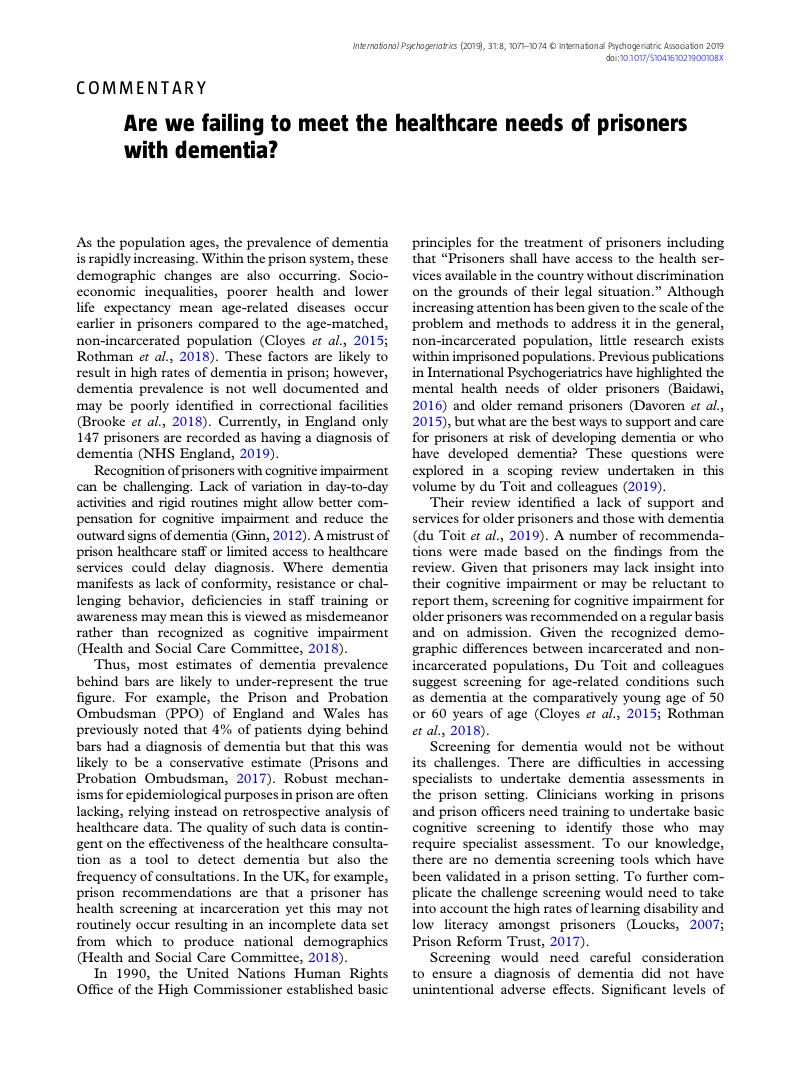Crossref Citations
This article has been cited by the following publications. This list is generated based on data provided by Crossref.
Chamberlain, Lucy
and
Dening, Karen Harrison
2020.
Dementia in prisons: the Admiral Nurse offer.
British Journal of Neuroscience Nursing,
Vol. 16,
Issue. 3,
p.
113.
Treacy, Samantha
Martin, Steven
Samarutilake, Nelum
Phillips, Veronica
Underwood, Ben R.
and
Van Bortel, Tine
2024.
Dementia care pathways in prisons – a comprehensive scoping review.
Health & Justice,
Vol. 12,
Issue. 1,
Veggi, Sara
and
Roveta, Fausto
2025.
Neurodegenerative Disorders in Criminal Offending and Cognitive Decline Among Aging Inmates.
NeuroSci,
Vol. 6,
Issue. 1,
p.
5.



